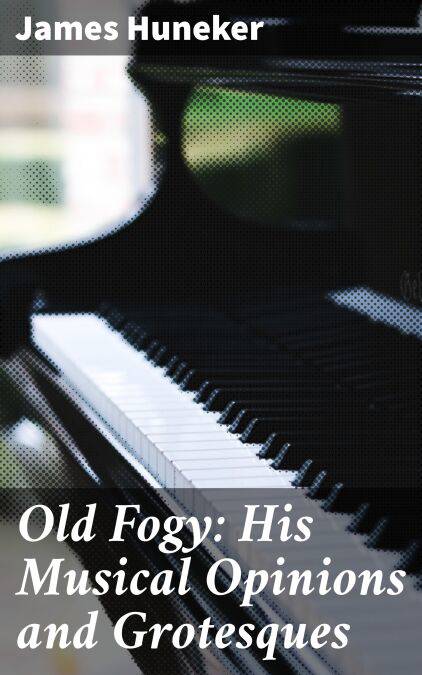
Bedankt voor het vertrouwen het afgelopen jaar! Om jou te bedanken bieden we GRATIS verzending (in België) aan op alles gedurende de hele maand januari.
- Afhalen na 1 uur in een winkel met voorraad
- In januari gratis thuislevering in België
- Ruim aanbod met 7 miljoen producten
Bedankt voor het vertrouwen het afgelopen jaar! Om jou te bedanken bieden we GRATIS verzending (in België) aan op alles gedurende de hele maand januari.
- Afhalen na 1 uur in een winkel met voorraad
- In januari gratis thuislevering in België
- Ruim aanbod met 7 miljoen producten
Zoeken
Old Fogy: His Musical Opinions and Grotesques E-BOOK
Essays on Music, Satire, and Vintage Humor in Cultural Commentary
James Huneker
E-book | Engels
€ 0,49
Omschrijving
In "Old Fogy: His Musical Opinions and Grotesques," James Huneker presents an intriguing amalgamation of music criticism and personal reflection, encapsulating the rich tapestry of late 19th-century musical thought. Written in a style characterized by eloquent prose and keen insight, Huneker delves into the complexities of contemporary music, passionately championing innovative composers while critiquing the outdated conventions of his time. The book serves not only as a collection of opinions but also as a vivid cultural commentary, reflecting the transitional phase of music from Romanticism to Modernism, and embracing the grotesque as a lens through which to evaluate art's deeper meanings. James Huneker, a prominent figure in American music criticism, was deeply influenced by the cultural shifts of his era, including the rise of European avant-garde art and music. His extensive background as a pianist and cultural commentator provided him with both the knowledge and the passion necessary to engage with music on a profound level. Huneker'Äôs unique perspective as an advocate for artistic innovation often put him at odds with his contemporaries, making his insights particularly important in understanding the evolution of musical tastes. This book appeals to both music enthusiasts and scholars, offering a rich exploration of a pivotal moment in musical history. Huneker's vivid imagery and sharp wit make "Old Fogy" a captivating read, providing timeless observations that continue to resonate in today'Äôs discourse around art and innovation. Readers will find Huneker's reflections challenge their perceptions, inviting deeper contemplation of music's role in culture.
Specificaties
Betrokkenen
- Auteur(s):
- Uitgeverij:
Inhoud
- Aantal bladzijden:
- 190
- Taal:
- Engels
Eigenschappen
- Productcode (EAN):
- 4064066225902
- Verschijningsdatum:
- 9/12/2019
- Uitvoering:
- E-book
- Beveiligd met:
- Digital watermarking
- Formaat:
- ePub

Alleen bij Standaard Boekhandel
Beoordelingen
We publiceren alleen reviews die voldoen aan de voorwaarden voor reviews. Bekijk onze voorwaarden voor reviews.









